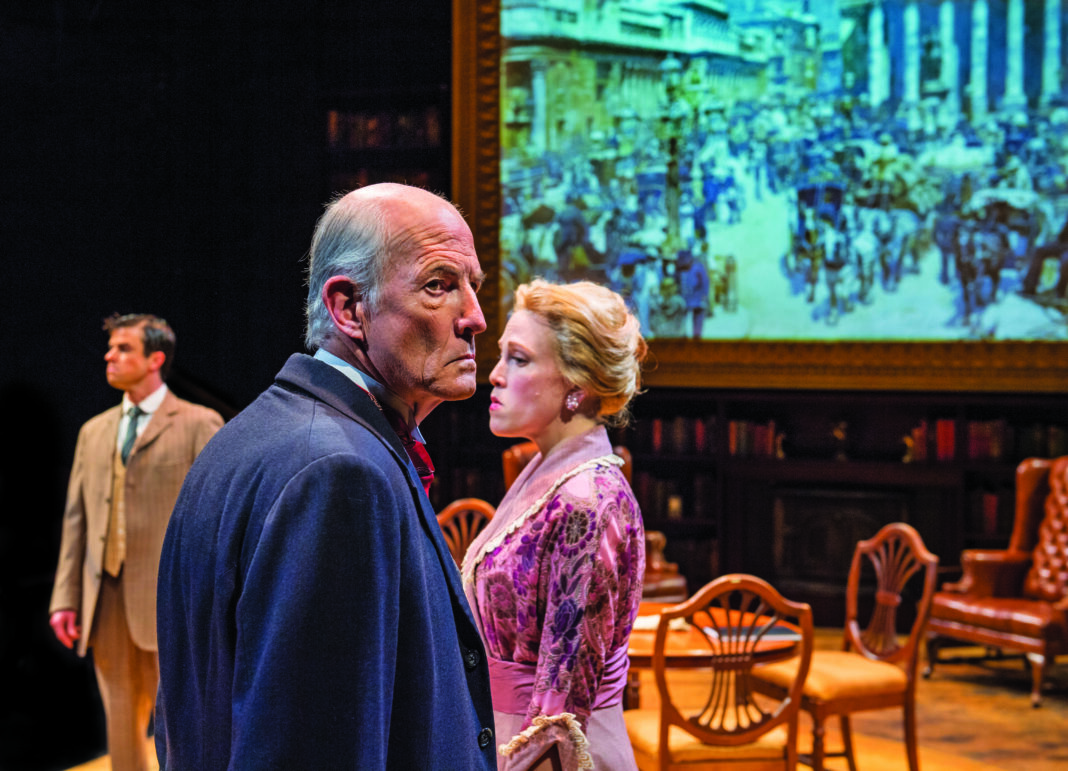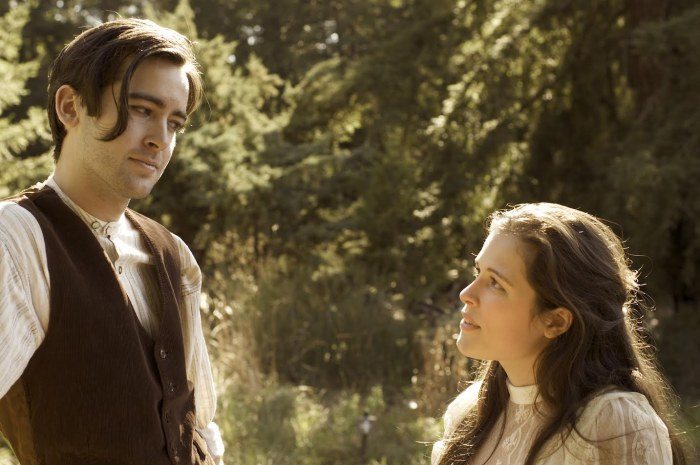If your impression of Anglo-Irish playwright George Bernard Shaw is that he was a doctrinaire liberal who is often amusing but also verbosely argumentative in support of progressive causes, you may be surprised by the Aurora Theatre Company’s sparkling production of Widowers’ Houses. Originally scheduled to close on February 25, favorable early reviews and brisk ticket sales have resulted in a one-week extension to March 4.
Houses debuted on December 9,1892 at London’s Royalty Theatre. It was the first of three works during the ’80s decade (the others being The Philanderer and Mrs. Warren’s Profession) that have collectively been dubbed “Plays Unpleasant” because they follow the lead of the Norwegian writer Henrik Ibsen by insisting on a realistic view of human nature, rather than the melodramatic exaggerations that prevailed earlier in the 19th century. As viewed through the lens of realism, there are no unsullied heroes or dastardly villains—only ordinary people who manifest a variety of good and bad attributes, occasionally at the same time. This can be uncomfortable for audiences to sort out, and Shaw later responded to their appetite for more straightforward, warm-blooded emotional release with plays like Pygmalion (which was later adapted into the hit musical and film My Fair Lady), Heartbreak House, Major Barbara and Arms and the Man, among many others.
However “unpleasant” as the truth about the characters and situations in Widowers’ Houses may be, it offers fascinating insights into the author’s complex, sometimes contradictory artistic and personal preferences-—traits that lasted throughout his long life (he died in 1950 at the age of 94). It is also to the credit of director Joy Carlin and her superb cast and designers that all of the disparate fragments ultimately come together as an intensely satisfying evening of theater.
Shaw’s plot is relatively simple. His erstwhile protagonist, an ingenuous young medical doctor named Harry Trench (sympathetically portrayed by Dan Hoyle) is vacationing in Germany with his older friend Cokane (Michael Gene Sullivan), who acts as a sounding board and occasional counselor. They meet up with a pretentious London property manager named Sartorius (Warren David Keith) and his spirited daughter Blanche (Megan Trout). Before you can say, “I know what’s coming,” Harry and Blanche fall madly in love and are planning marriage when Harry discovers that Sartorius is actually one of London’s most notorious slumlords, who dispatches his cunning lackey, Lickcheese (Howard Swain) to collect exorbitant rents from tenants who reside in their squalid dwellings.
This creates a moral crisis for Harry. Without being aware of how the funds were generated, he has invested the 700 English pounds he receives annually from his father’s estate in Sartorius’ real estate company and uses the income to help him start a medical career. Having been informed that it is “dirty” money, how can he possibly accept the dowry that Blanche and her father are promising? But when he broaches the subject, Blanche angrily breaks off the engagement, explaining that she has no intention of marrying someone who is “crazy” enough to reject Sartorius’ generous offer of the financial assistance needed to sustain her expensive lifestyle.
What a conundrum! How it is resolved I won’t reveal, except to say that no one comes out with his or her honor intact.
Most commentators whose writings I have consulted, contemporary reviewers included, credit Widowers’ Houses as a powerful indictment of the excesses of contemporary capitalism and the misery it engenders among the poor. They cite it as beginning Shaw’s lifelong mission of defending society’s weaker members against their voracious oppressors. A closer look, however, reveals that on the most important issue that separates liberals from conservatives—having an optimistic or pessimistic view of human nature, and how that determines whether the fortunate are morally bound to help those in need—Shaw was a fence-sitter. Sartorius’ arguments about why the poor will never be eliminated have an uncomfortable ring of truth about them, as does this exchange between the liberal Cokane and the conservative Lickcheese:
Cokane: “ … the love of money is the root of all evil.”
Lickcheese: “ … and we’d all like to have the tree growing in our garden.”
This ambiguity runs through most of Shaw’s work. Widowers’ Houses is a wonderful show. See it.
NOW PLAYING: Widowers’ Houses runs through March 4 at the Aurora Mainstage Theatre, 2081 Addison St., Berkeley; 519/843-4822; auroratheatre.org.









